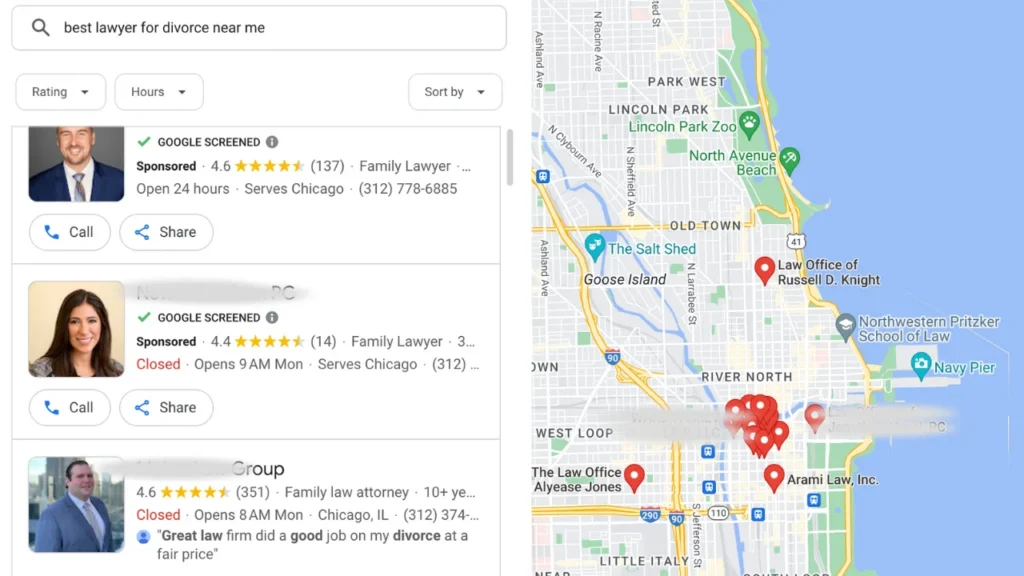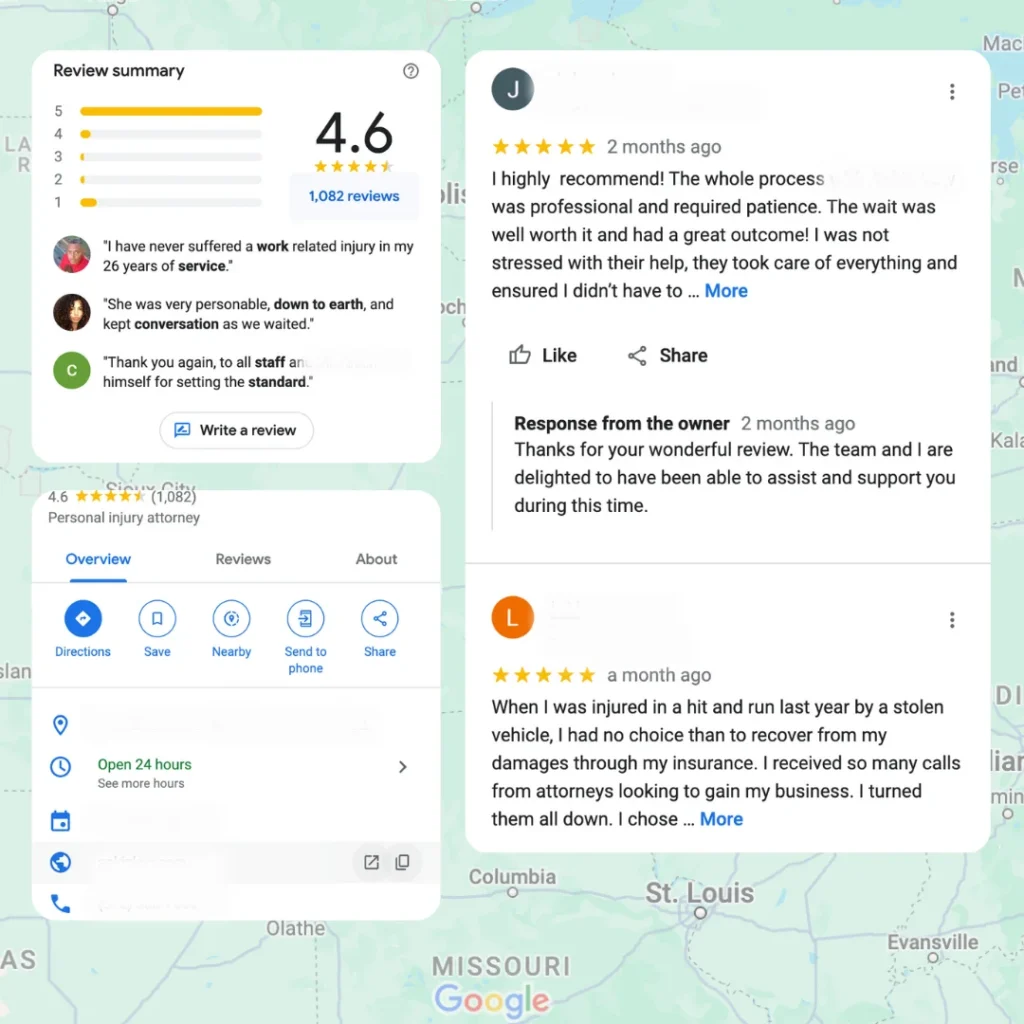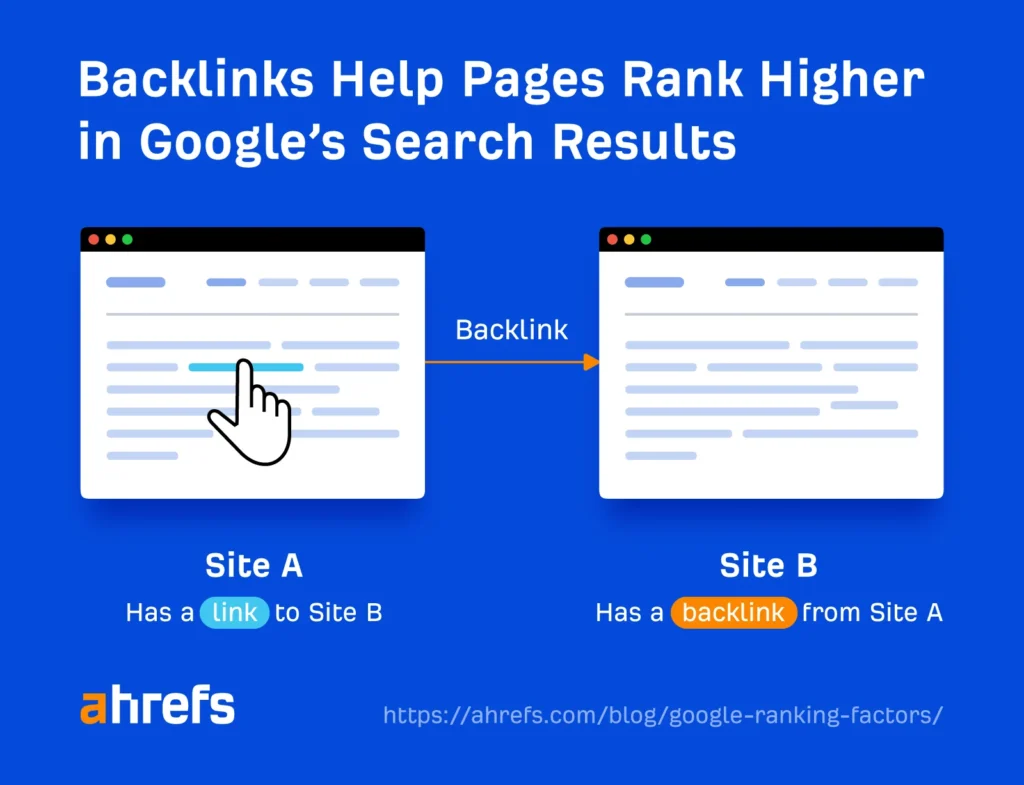Estimated reading time: 10 minutes
Establishing a robust online presence is crucial for legal services online. Local Search Engine Optimization (SEO) is an important marketing strategy for law firms. In addition, it’s also a vital component of their business development.
This guide offers insight into mastering local SEO, ensuring your firm stands out in local search results. Thus attracting the right clientele directly to your doorstep.
Understanding Local SEO
SEO is a specialized approach to online marketing focusing on increasing a business’s visibility in local search engine results. Understanding and implementing local SEO is crucial for law firms to attract clients within a specific geographic area. Here’s a breakdown of key aspects:
What is Local SEO?
Local SEO involves optimizing a business’s online presence to appear in search results for local searches. This means when someone searches for: “divorce lawyers near me” or “personal injury attorney in Houston”. Your firm appears in the results.

Importance of Local SEO for Law Firms:
- Local Relevant Clients: Most clients prefer legal services within their locality. Local SEO ensures your firm appears to the relevant potential clients in your vicinity.
- Competitive Advantage: A good local SEO means standing out among local competitors. This means giving your firm a significant advantage in the local market.
- Mobile Search Relevance: More and more people use mobile devices for searches. Local SEO aligns your firm with the growing trend of on-the-go searches for services.
How Local SEO Works:
- Search engines like Google use different algorithms for local searches. They emphasize factors like location, local content, local links, and Google My Business profiles. Get more information on how to rank higher on Google as an attorney.
- These algorithms consider the searcher’s location to provide locally relevant results, making proximity a key factor in local SEO.
Key Factors Influencing Local SEO:
- Google My Business (GMB) Optimization: A well-optimized GMB profile is essential. This includes accurate and comprehensive details about your firm, such as services, location, contact details, and operating hours.
- Local Keywords: Using keywords that reflect local search queries is crucial. This involves integrating city names, local landmarks, or region-specific legal issues into your website’s content.
- Local Citations and NAP Consistency: Your firm’s name, address, and phone number (NAP) should be consistently listed across the web.
- Online Reviews: Positive reviews significantly influence local SEO, especially on your GMB profile. They provide social proof and reliability.
- Mobile Responsiveness: Ensuring your website is mobile-friendly is key—many local searches happen on mobile devices.
Local SEO vs. Traditional SEO:
- While traditional SEO focuses on ranking in searches regardless of the searcher’s location, local SEO prioritizes appearing in searches within a specific location.
- Local SEO requires a more targeted approach, focusing on local community engagement, local-specific content, and local backlink building.

Why Local SEO is Essential for Lawyers
Creating relevant and localized content is a cornerstone of law firms’ effective local SEO strategy. This approach involves tailoring your website’s content to reflect your community’s local issues, interests, and legal needs. Here are some strategies to enhance your local SEO content:
- Target Local Keywords: Research and identify keywords that potential clients in your area use to find legal services. Incorporate these keywords naturally into your web pages, blog posts, and articles.
- Write About Local Events and Issues: Regularly create content related to local events or legal changes in your area. This demonstrates your engagement with the community and aligns your website with local search queries.
- Community Involvement and Sponsorship: Participate in or sponsor local events and write about these experiences. Sharing these activities on your website and social media channels can boost local relevance.
- Client Success Stories and Case Studies: Share success stories highlighting your involvement in resolving local legal matters. This kind of content resonates with a local audience and showcases your expertise in handling issues pertinent to them.
- Local Legal Guides: Publish guides or articles that address specific legal issues common in your area. For instance, provide property law content if you’re in a city with a high real estate development rate.

Key Components of Local SEO for Lawyers
- Google My Business Optimization: Your Google My Business (GMB) listing is your firm’s direct line to potential clients. Ensure your listing is accurate, complete, and optimized for your practice areas. Regular updates and responding to reviews are also crucial.
- On-Page SEO Strategies: This involves optimizing your website’s content for local search terms. Include location-based keywords, local news, and community events to enhance relevance.
- Building Local Citations: Citations in local business directories enhance your online presence. Ensure your firm’s name, address, and phone number (NAP) are consistent across all platforms.
- Garnering Reviews: Positive reviews boost your firm’s credibility and search rankings. Encourage satisfied clients to leave feedback on your GMB and other legal directories.
- Mobile Optimization: With the increasing use of smartphones for searches, having a mobile-optimized website is essential. Ensure your site is responsive and loads quickly on all devices.

Local SEO Content Strategy for Law Firms
Creating localized content can significantly enhance your local SEO efforts. Blog about local legal news and community events or provide insights on local cases. This establishes your authority and improves your visibility in local search queries.
Leveraging Local Backlinks
Backlinks from local sources can significantly enhance your law firm’s local SEO. These are some methods to obtain valuable local backlinks:
- Collaborations with Local Businesses and Organizations: Partner with local businesses for events and have them link to your site. This collaboration is mutually beneficial and strengthens local connections.
- Guest Posting on Local Websites: Write guest posts for local business blogs, community websites, or local news outlets. Ensure these posts provide valuable information and include a link back to your website.
- Participation in Local Online Forums and Groups: Engage in local online communities and forums. Offer legal insights and advice where appropriate, and include a link to your website in your profile or signature.
- Local Directory Listings: Ensure your law firm is listed in local and legal-specific directories with a backlink to your website. Keep your information consistent across all listings.
- Press Releases for Local Media: Whenever your firm has newsworthy updates or accomplishments, distribute a press release to local newspapers, magazines, and online news sites. Include a link back to your website in the press release.
- Testimonials and Reviews for Local Services: If you use local services (like court reporting, investigation, etc.), leave testimonials on their websites if possible, and ask if they can mention your firm with a backlink in return.

Effectively monitoring your SEO performance is critical to understanding the impact of your strategies for future improvements. For law firms, this means regularly tracking various metrics and adapting their SEO tactics accordingly.
Key Metrics to Track:
- Traffic Volume: Monitor the number of visitors to your site, especially from local searches. Tools like Google Analytics provide insights into how much traffic your SEO efforts generate.
- Search Rankings: Keep an eye on where your firm ranks for key local search terms. Higher rankings generally lead to increased traffic and potential client engagement.
- Conversion Rates: Track how many visitors are taking desired actions (like filling out contact forms or calling your office). This helps gauge the quality of traffic coming from your SEO efforts.
- Bounce Rate: Analyze the bounce rate, which is the percentage of visitors who leave your site after viewing only one page. A high bounce rate might indicate that your site’s content isn’t meeting the needs of your audience.
- Local Visibility: Use tools like Google My Business Insights to see how often your listing appears in local searches and how many actions (calls, website visits, direction requests) are taken.

- Utilize SEO tools like Moz Local, SEMrush, or Ahrefs to monitor your rankings and identify areas for improvement.
- Google Analytics is essential for tracking website traffic, user behavior, and conversion metrics.
- Google Search Console helps you understand how Google views your site and optimizes your performance in search results.
Regular SEO Audits:
- Conduct periodic SEO audits to evaluate the effectiveness of your strategies. This includes checking for broken links, evaluating page load times, and ensuring your website is mobile-friendly.
- Assess your content’s relevance and quality, ensuring it aligns with local search terms and provides value to your target audience.

Competitor Analysis:
- Keep an eye on your competitors’ SEO strategies. Analyze what they are doing well and identify gaps in your own strategy.
- Monitor their search rankings, backlink profile, and content strategy to understand the competitive landscape.
Adapting Your Strategy:
- Based on the data gathered, continue to refine your SEO tactics. If certain keywords aren’t performing well, consider targeting different ones.
- Update your content regularly to keep it fresh and relevant. This includes revising old blog posts, adding new information, and building on emerging local legal trends.
User Feedback and Interaction:
- Pay attention to feedback and queries received from website visitors. This can provide valuable insights into what potential clients are looking for and how you can improve your site.
- Encourage reviews and engage with reviewers, especially on your Google My Business profile, as this can also offer insights into your firm’s online perception.
Conclusion
Local SEO is a powerful tool for lawyers aiming to establish a strong local presence online. By focusing on Google My Business optimization, on-page SEO, local citations, reviews, mobile responsiveness, localized content, and local backlinks, your law firm can significantly improve its visibility in local search results. Remember, the world of SEO is always evolving, so stay updated with the latest trends and best practices. With the right approach, local SEO can become a cornerstone of your firm’s marketing strategy, driving more clients and cases to your practice. Read our Comprehensive SEO for Law Firms guide for more insights on how to make your legal practice more visible online.
At Partner Digital Agency, we specialize in boosting the online visibility of your law firm through effective SEO strategies. We understand your industry’s unique challenges and opportunities and will help you stand out in search engine rankings.
We will help you optimize your website’s content, improve site speed, and enhance local SEO. These improvements can drive more organic traffic to your site, leading to more high-quality leads. Take the first step towards improving your online presence by scheduling a free website audit today.
Let us analyze your website’s performance and provide you with insights to help your law firm thrive online. Schedule your Free SEO Audit here: https://calendly.com/hello-partner/30min